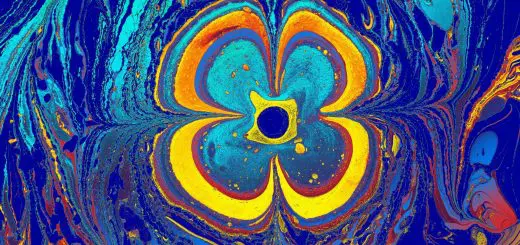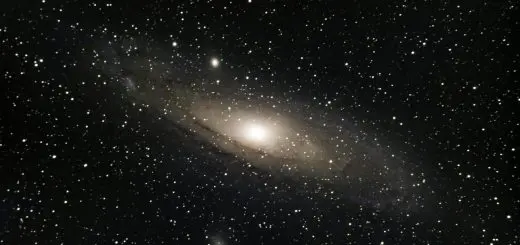What Is Fracking and Why Is It Harmful to the Environment?

Looking for more amazing products? Check out our online store and explore our collection here! Happy shopping!
Before diving in, please note: This post is for informational purposes only. If you’d like to know more about how we approach topics, feel free to check out our friendly Disclaimer Page.
Hey there, amazing readers! 
We’re committed to delivering quality posts, and your support (even just sticking around despite the ads) means everything to us. So, bear with us, and thanks for helping us keep the good vibes rolling. Now, on to the fun stuff!
TRANSLATE BUTTON AT THE END OF THE ARTICLE
Fracking (short for hydraulic fracturing) is a method used to extract oil and natural gas from deep underground rock formations, particularly shale.
The process involves injecting a mixture of water, sand, and chemicals into the ground at high pressure to crack open the rock layers and release trapped oil and gas.
While fracking has revolutionized the energy industry, making previously inaccessible resources more available, it has raised significant environmental and health concerns.
Let’s dive deeper into how fracking works and why many people consider it harmful.
How Does Fracking Work?
Fracking involves several steps:
Drilling: A well is drilled vertically into the earth until it reaches the rock formations that contain oil or gas.
Once the desired depth is reached, the drill is redirected horizontally to target a wider area of the rock layers.
Injection: A mixture of water, sand, and chemicals (known as “fracking fluid”) is pumped into the well at extremely high pressure.
This causes the rock to fracture, creating fissures through which oil and gas can flow into the well.
Extraction: Once the fractures are created, the oil and gas flow to the surface, where they are collected and processed.
Wastewater Disposal: The leftover fracking fluid, often containing a variety of chemicals, needs to be disposed of, which can sometimes lead to environmental challenges.
Why Is Fracking Considered Bad?
While fracking has made significant strides in increasing domestic oil and gas production, the method comes with several environmental and health risks that raise alarms.
Below are some of the most prominent concerns:
Water Contamination
One of the biggest environmental issues associated with fracking is the potential for water contamination.
The chemicals used in the fracking fluid can seep into nearby water sources, especially if the well casing is poorly constructed or if the fluid is improperly disposed of.
This can lead to the contamination of groundwater, which is a vital source of drinking water for many communities.
There have been reports of residents near fracking sites noticing strange smells, odd tastes, and sometimes even flammable water coming from their taps.
Contaminants like benzene, methane, and other toxic substances have been found in drinking water sources, posing serious health risks.
Air Pollution
Fracking operations release pollutants into the air, including volatile organic compounds (VOCs) and particulate matter.
These pollutants can contribute to the formation of smog, which can affect air quality and harm respiratory health.
Long-term exposure to these emissions has been linked to respiratory problems, headaches, and even more severe conditions like asthma and cancer.
Earthquakes
The process of injecting large amounts of high-pressure fluid into the ground can also lead to the occurrence of small earthquakes, also known as “induced seismicity.” These tremors are typically minor, but they can cause structural damage and lead to concerns about the stability of nearby buildings and infrastructure.
The disposal of fracking wastewater into deep injection wells has been particularly associated with increased seismic activity in some regions.
Climate Change Concerns
Although natural gas is often touted as a cleaner alternative to coal and oil, fracking still contributes to climate change.
The process itself releases methane, a potent greenhouse gas, into the atmosphere.
In fact, studies suggest that methane emissions from fracking operations can be significantly higher than previously estimated, which could offset the climate benefits of using natural gas over coal.
Depletion of Water Resources
Fracking requires large amounts of water, often millions of gallons per well.
In areas that are already experiencing water scarcity, this can strain local water resources, affecting agricultural and drinking water supplies.
This is particularly concerning in regions that are prone to drought or where freshwater availability is already limited.
Health Risks for Workers
Fracking is not only dangerous to the environment, but it also poses serious health risks to the workers involved in the process.
Exposure to toxic chemicals, dust, and gases on the job can lead to long-term health issues such as respiratory problems, cancer, and other life-threatening conditions.
Worker safety regulations and monitoring have been an ongoing concern in the industry.
The Debate: Economic vs. Environmental Impact
Fracking supporters argue that the technique has led to a boom in domestic energy production, reduced energy prices, and created jobs.
The U.S., for example, has become one of the world’s top producers of oil and natural gas, thanks in large part to fracking.
However, critics emphasize the long-term environmental damage that may be caused by these practices, which can outweigh short-term economic benefits.
As more research emerges on the environmental and health risks associated with fracking, the debate continues over how to balance energy needs with sustainability and safety.
Conclusion
Fracking is a complex and controversial method of extracting oil and gas from deep underground.
While it has provided an economic boost and helped reduce reliance on foreign energy sources, it comes with significant risks, including water contamination, air pollution, induced earthquakes, and climate change concerns.
As the world grapples with the need for cleaner energy sources and better environmental practices, the future of fracking remains uncertain.
Many people are pushing for stricter regulations, better monitoring of fracking sites, and a transition to renewable energy solutions that don’t come with such a high environmental cost.

The Enlightenment Journey is a remarkable collection of writings authored by a distinguished group of experts in the fields of spirituality, new age, and esoteric knowledge.
This anthology features a diverse assembly of well-experienced authors who bring their profound insights and credible perspectives to the forefront.
Each contributor possesses a wealth of knowledge and wisdom, making them authorities in their respective domains.
Together, they offer readers a transformative journey into the realms of spiritual growth, self-discovery, and esoteric enlightenment.
The Enlightenment Journey is a testament to the collective expertise of these luminaries, providing readers with a rich tapestry of ideas and information to illuminate their spiritual path.
Our Diverse Expertise
While our primary focus is on spirituality and esotericism, we are equally passionate about exploring a wide range of other topics and niches 

To ensure we provide the most accurate and valuable insights, we collaborate with trusted experts in their respective domains 
Our blog originally focused on spirituality and metaphysics, but we’ve since expanded to cover a wide range of niches. Don’t worry—we continue to publish a lot of articles on spirituality! Frequently visit our blog to explore our diverse content and stay tuned for more insightful reads.
Hey there, amazing reader! 
Check out our store here and take a peek at some of our featured products below! Thanks for being awesome!










